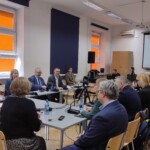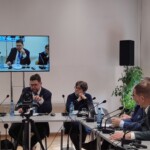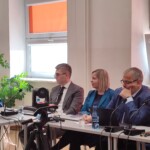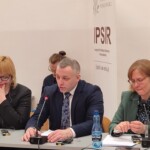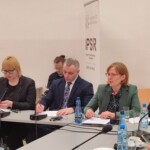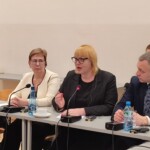The constitution in action. Can the constitution be a sham?
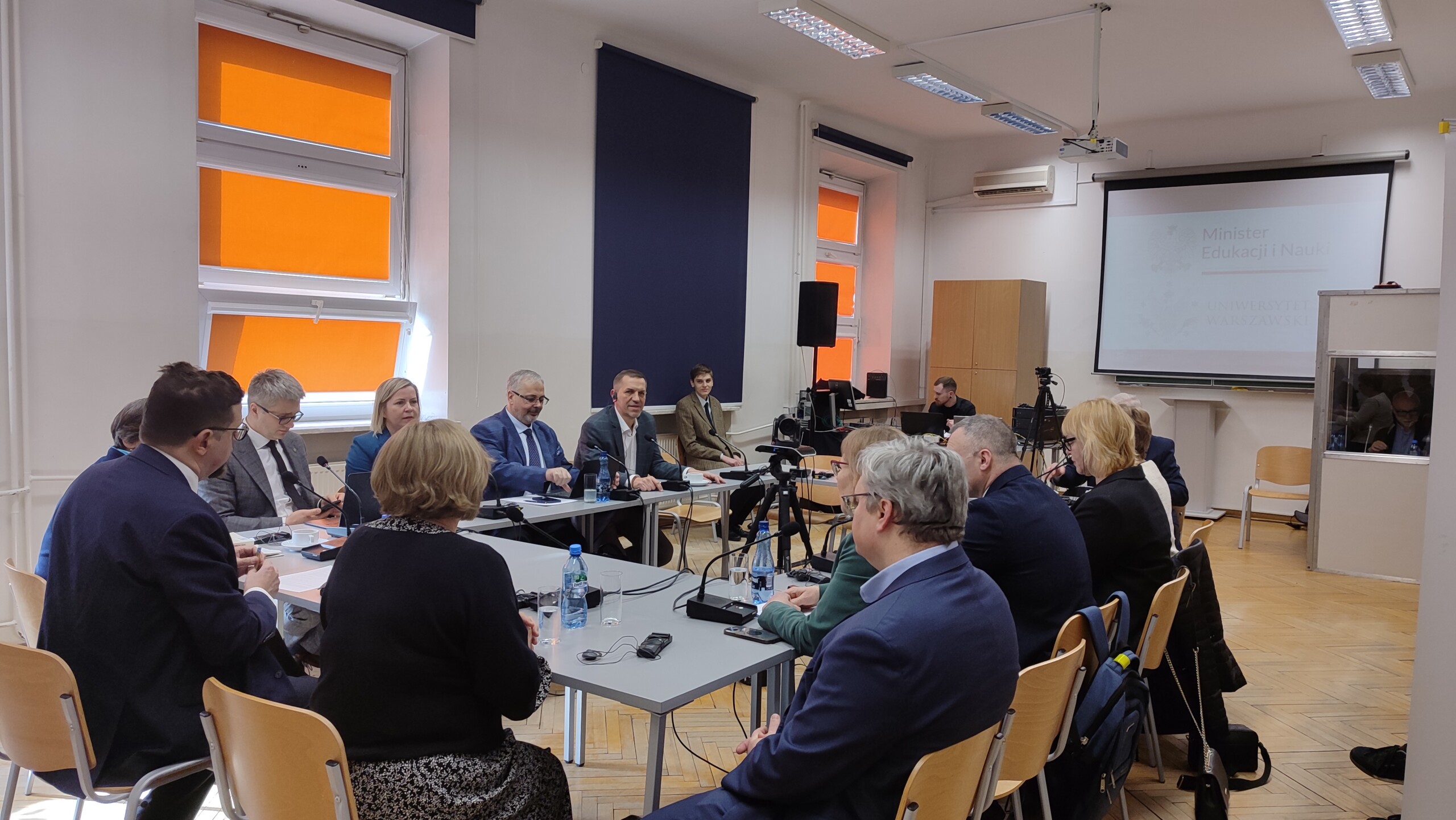
07 03 2025
On 7 March 2025, a solemn seminar was held at the headquarters of the Institute of Social Prevention and Re-socialisation at the University of Warsaw, marking the formal opening of the project ‘The impact of the shape of the political system on the quality of functioning of state institutions. Polish and Ukrainian experiences and perspectives’, with the participation of Professor Andrzej Szeptycki, Undersecretary of State in the Ministry of Science and Higher Education.
The meeting was attended by representatives of the authorities of the Faculty of Applied Social Sciences and Social Reintegration at the University of Warsaw: the Dean of the Faculty, Prof. Aneta Gawkowska and the Deputy Deans: PhD Danuta Lalak and PhD, Prof. Marek Rymsza, as well as permanent members of the project team from the University of Warsaw, Jagiellonian University, Wrocław University, the Institute of Political Studies of the Polish Academy of Sciences, the National Academy of Sciences of Ukraine and the Vasyl Stefanyk Carpathian National University in Ivano-Frankivsk.
The opening of the project was linked to the second seminar in the series ‘Ustrój w działaniu’ (Establishment in Action), this time devoted to considerations of the constitution in the sociological current. In an article entitled ‘Constitution in Action. Can a constitution be a dummy?”, PhD Agnieszka Dudzińska presented contemporary research trends concerning the formation and social functions of constitutions.
The main idea, running through the speaker’s presentation, was that constitutions can be looked at as a social product, a living entity taken for granted. In this regard, some scholars have even called for ethnographic methods to be used to study constitution. Kim Scheppele, for example, who adopts a phenomenological approach, assumes that an understanding of the perspective of a given social world becomes possible only after immersion in it and in the ideas it proposes, shared in the community ‘inhabiting’ that particular world. The study of constitution thus prescribes an examination of how social reality produces ideas, and how these then feedback into social life in the form of a set of norms.
A constitution can be spoken of as successful when its ideas spread beyond the boundaries of the text and interact with the field of social practice. The constitution is also an expression of a socially shared axiology. However, there is a risk involved: with changes in social norms comes the possibility of questioning the constitution itself.
One of the phenomena observed in various studies is the masking of authoritarian tendencies by means of the appearance of constitutional democracy – the eponymous constitution-atrapy. In such a situation, in spite of the formal existence of a democratic system, the protection mechanisms against abuse of power may be weakened. In states whose regimes are based on constitution-atraps, every action of the authorities can be considered to be in accordance with the Basic Law, as formally there is no violation of its provisions. This state of affairs is cemented by the inertia of the opposition, in the eyes of whom this arrangement appears favourable after a possible future seizure of power.
In the following part of the argument, the speaker outlined the problem of borrowed constitutions – a phenomenon typical, among others, of post-communist countries. One of the most unfavourable consequences of this is the undermining of the constitution by citizens, in whose eyes it is a product of the elite, serving their interests. In this regard, the speaker emphasised the importance of reflecting on the constitution through the prism of local culture – such reflection should precede the introduction of any borrowed solutions.
Finally, the speaker presented the division of constitutions into rigid and flexible ones. The former are more durable and make it possible to operate in the absence of consensus on the details, but at the same time, due to their general nature, they open the door to various interpretations and are sometimes based on outdated ideas of previous generations. The latter, on the other hand, make it easier to operate in a reality subject to dynamic change and, because of the possibility of more frequent change, can be more detailed.
Dr Hab. Dudzińska emphasised that although in Poland there is from time to time a resurgence of debate about the need for constitutional change, there is hardly any real possibility of such change in the foreseeable future. The Polish experience, on the other hand, could serve as an inspiration for Ukraine – a country with a huge demand for reform in post-war realities.
The article produced a lively discussion. One of the themes alluded to by the majority of the panel members was the division of constitutions into rigid and flexible, along with the opportunities and dangers of each option. The functions of the constitution were also discussed and the problems faced by states with constitutions-atraps were discussed. The Polish tradition of constitutional surveys, conducted among legal scholars specialising in constitutional law, was also recalled. As during the first meeting, the specific realities of the functioning of the Ukrainian state and the expected reforms, in particular de-oligarchisation, were raised.
The seminar also discussed many detailed aspects of the political system. Indeed, constitutional considerations serve to view them in the context of the overall system. In addition, the sociological perspective directs reflection towards the possibilities of interdisciplinary empirical research.
![]() Full seminar recording on YouTube
Full seminar recording on YouTube

